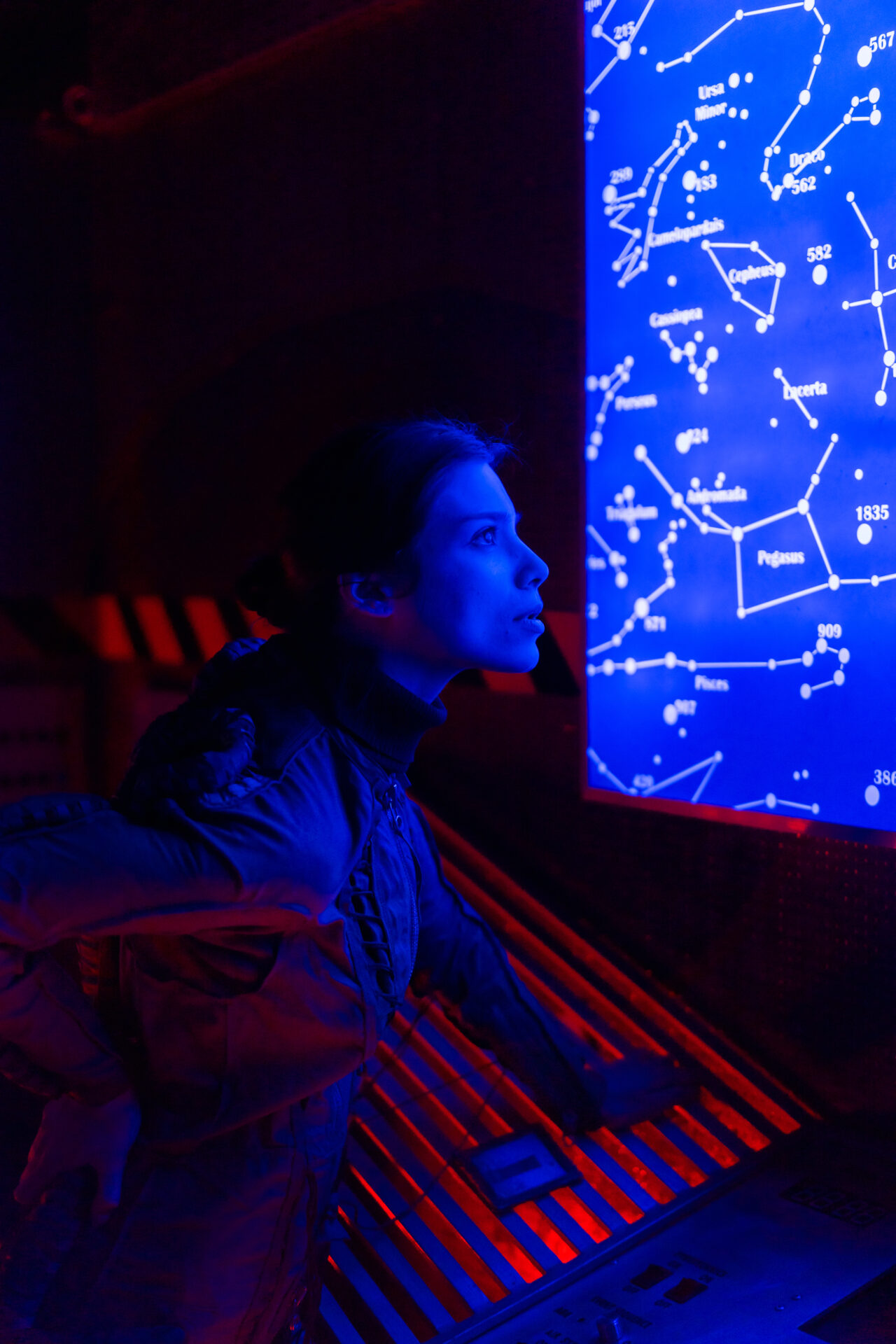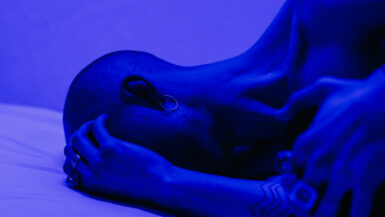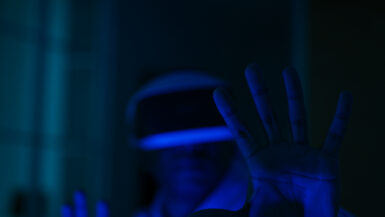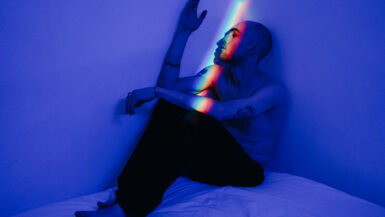In today’s fast-paced, technology-driven world, the impact of blue light on sleep and productivity has become an increasingly crucial topic of discussion. This article, titled “The Connection Between Blue Light and Sleep in the Military,” delves into the core aspects of this issue, particularly focusing on the military personnel who are exposed to screens and artificial light sources during their daily operations. We will discuss the science behind blue light exposure, its effects on sleep patterns and overall productivity, and explore potential solutions to mitigate these negative impacts on our servicemen and women. By understanding the significance of blue light and its influence on the sleep-wake cycle, we aim to raise awareness and promote better practices for improved sleep hygiene and overall well-being in the military community.
Strategies to Minimize Blue Light Exposure in the Military
As discussed earlier, the impact of blue light on sleep and productivity is significant, especially for military personnel who are required to maintain high levels of alertness and performance. In this section, we will explore various strategies that can be employed to reduce blue light exposure in the military, thus promoting better sleep and improved productivity.
Utilizing Blue Light Blocking Technology
With advancements in technology, there are now numerous devices and tools available that can help block blue light emissions from electronic screens. These devices include blue light blocking glasses, screen protectors, and software applications that can automatically adjust the color temperature of screens to reduce blue light emission. Encouraging military personnel to use these tools can be an effective way to minimize their exposure to blue light, particularly during night shifts or when engaging with screens for prolonged periods.
For more information on how blue light affects sleep and performance at work, check out this article: How Blue Light Affects Sleep and Performance at Work.
Establishing Device-Free Zones and Times
Another strategy that can help reduce exposure to blue light in the military is the implementation of device-free zones and times. By designating specific areas where the use of electronic devices is prohibited, or by setting specific hours during which screens are off-limits, military personnel can experience a break from constant blue light exposure. This can not only improve sleep quality but also encourage social interaction and relaxation, which are essential for overall well-being.
Adopting Healthy Sleep Hygiene Practices
In addition to minimizing blue light exposure, it is crucial for military personnel to prioritize healthy sleep hygiene practices. These practices include maintaining a consistent sleep schedule, creating a sleep-friendly environment, and engaging in relaxing activities before bedtime. By encouraging the adoption of these habits, the military can promote better sleep quality, which in turn can result in improved productivity and performance.
Providing Sleep Education and Training
Lastly, it is vital to ensure that military personnel are well-informed about the importance of sleep and the impact of blue light on their sleep patterns. By offering sleep education and training programs, the military can equip its members with the knowledge and skills required to manage their exposure to blue light and maintain healthy sleep habits. This can ultimately lead to a more resilient and efficient military force.
By implementing these strategies, the military can take significant steps toward reducing the negative effects of blue light exposure on sleep and productivity. Through increased awareness and proactive measures, our servicemen and women can enjoy better sleep and improved overall well-being, leading to enhanced performance in their demanding roles.
Effects of Blue Light on Sleep Quality for Soldiers
The military lifestyle often involves irregular schedules, long hours, and frequent exposure to artificial light sources such as electronic screens. As a result, soldiers are particularly susceptible to the negative effects of blue light on their sleep quality. In this section, we will delve deeper into the specific impacts of blue light on soldiers’ sleep patterns and the potential consequences on their physical and mental well-being.
Disruption of Circadian Rhythms
The body’s internal clock, known as the circadian rhythm, regulates our sleep-wake cycle. Exposure to blue light, particularly in the evening, can disrupt this natural rhythm by suppressing the release of melatonin, the hormone responsible for inducing sleep. For soldiers, this disruption can lead to difficulties in falling asleep, staying asleep, or waking up at appropriate times, ultimately compromising their ability to maintain a healthy sleep schedule.
Reduced Sleep Duration and Quality
With the interference in melatonin production caused by blue light exposure, soldiers may experience a reduction in both the duration and quality of their sleep. This can result in fragmented sleep, frequent awakenings, or insufficient deep sleep, which is crucial for physical and cognitive recovery. Consequently, the overall restorative benefits of sleep are diminished, leaving soldiers feeling fatigued and unrested.
Increased Risk of Sleep Disorders
Chronic exposure to blue light and the subsequent disruption of sleep patterns can also increase the risk of developing sleep disorders among soldiers. These disorders may include insomnia, sleep apnea, or circadian rhythm sleep-wake disorders, all of which can negatively impact their overall health and well-being.
Impaired Cognitive and Physical Performance
Compromised sleep quality due to blue light exposure can have significant consequences on soldiers’ cognitive and physical performance. A lack of restorative sleep can lead to diminished alertness, impaired decision-making, and reduced reaction times, which are critical factors for military personnel in high-pressure situations. Additionally, physical performance may be adversely affected, with increased fatigue and reduced endurance levels.
Long-Term Health Consequences
Over time, the chronic disruption of sleep patterns caused by blue light exposure can contribute to a range of long-term health issues. These may include increased risk of obesity, diabetes, cardiovascular disease, and mental health disorders such as depression and anxiety. For soldiers, these health problems can not only impact their personal lives but also compromise their ability to perform their duties effectively.
To counteract the negative effects of blue light on sleep quality for soldiers, it is essential to implement strategies that minimize exposure and promote healthy sleep habits. By doing so, the military can ensure the well-being of its personnel, leading to improved performance and overall readiness.
Understanding Blue Light Exposure in Military Personnel
The complex relationship between blue light and sleep is particularly relevant for military personnel, who often face long hours, irregular schedules, and constant exposure to artificial light sources. In this section, we will explore the specific aspects of blue light exposure that are unique to military personnel, as well as the potential consequences on their sleep patterns, overall health, and performance.
The Nature of Military Duties and Blue Light Exposure
Military personnel are often required to work in environments that expose them to high levels of blue light, such as nighttime operations, extended screen usage, and indoor lighting conditions. These scenarios can lead to an increased exposure to blue light, which can have a detrimental impact on sleep and overall well-being.
Shift Work and Circadian Rhythm Disruption
One of the primary factors contributing to disrupted sleep patterns in military personnel is the prevalence of shift work. Rotating shifts or night shifts can expose servicemen and women to blue light during the evening hours, which can interfere with the natural sleep-wake cycle and disrupt the release of melatonin. This disruption can result in difficulties falling asleep, staying asleep, and maintaining a consistent sleep schedule.
Extended Screen Time and Electronic Devices
Modern military operations often involve the use of electronic devices for communication, surveillance, and data analysis. As a result, military personnel may spend extended periods in front of screens, exposing them to high levels of blue light. This prolonged exposure can further exacerbate the negative effects of blue light on sleep, as well as contribute to eye strain and other health issues.
Artificial Lighting in Military Settings
In addition to screen usage, military personnel are frequently exposed to artificial lighting while working indoors or during nighttime operations. Artificial light sources, such as LED lights and fluorescent bulbs, emit high levels of blue light, which can interfere with natural sleep patterns and contribute to sleep disruptions.
Compounding Factors Impacting Sleep in Military Personnel
It is also important to consider other factors that may compound the effects of blue light exposure in military personnel. These factors may include stress, physical exertion, and environmental conditions, all of which can influence sleep quality and overall health. By addressing these additional factors, we can develop a more comprehensive understanding of the complex relationship between blue light exposure and sleep in the military context.
By gaining a deeper understanding of blue light exposure in military personnel and the various factors contributing to disrupted sleep patterns, we can identify potential solutions and strategies to mitigate these negative effects. This knowledge can ultimately contribute to the development of a healthier, more resilient, and better-rested military force.
Improving Sleep and Productivity through Blue Light Management
The significance of managing blue light exposure for military personnel cannot be overstated, as it directly influences their sleep quality, overall health, and performance. In this subsection, we will discuss various strategies that can be implemented to effectively manage blue light exposure, ultimately leading to improved sleep and productivity for our servicemen and women.
Adopting a Proactive Approach to Blue Light Management
By acknowledging the potential risks associated with blue light exposure, military personnel can adopt a proactive approach to minimize its impact on their sleep and performance. This may involve being mindful of their screen usage, especially during the evening hours, and seeking out opportunities to reduce exposure to artificial light sources whenever possible.
Embracing Natural Light during Daytime Hours
Exposure to natural sunlight during daytime hours can be beneficial for regulating the body’s internal clock and promoting healthy sleep patterns. Military personnel should be encouraged to take breaks outdoors, engage in physical activity under natural light, and ensure that their working environments are well-lit with natural light whenever feasible.
Creating a Sleep-Friendly Environment
The sleeping environment plays a critical role in promoting restorative sleep. Military personnel can optimize their sleep spaces by reducing exposure to blue light sources, maintaining a comfortable temperature, and ensuring that the room is dark and quiet. Blackout curtains, sleep masks, and earplugs may be helpful tools in creating an ideal sleep environment.
Establishing a Consistent Pre-Sleep Routine
Developing a consistent pre-sleep routine can aid in signaling to the body that it’s time for rest. This routine can include activities such as reading, meditation, or light stretching, ideally conducted in a low-light setting to minimize blue light exposure. By incorporating these relaxing activities before bedtime, military personnel can promote a smoother transition to sleep and improve overall sleep quality.
Seeking Professional Guidance for Sleep Issues
Military personnel who continue to experience sleep difficulties despite implementing blue light management strategies should consider seeking professional guidance. Sleep specialists can provide tailored advice and support to address individual sleep concerns, as well as recommend any necessary interventions or treatments.
By taking these steps to manage blue light exposure and prioritize sleep, military personnel can experience significant improvements in their overall well-being and productivity. A well-rested and healthy military force is better equipped to face the challenges of their demanding roles, ultimately contributing to a stronger and more effective defense system.
Nighttime Device Use and Its Impact on Military Performance
The proliferation of electronic devices has led to an increase in nighttime device use, which can have significant consequences on sleep quality and military performance. In this subsection, we will explore the specific impacts of nighttime device use on military personnel, shedding light on the potential repercussions of this behavior and the importance of addressing this issue.
The Allure and Prevalence of Nighttime Device Use
In today’s digital age, electronic devices have become an integral part of our daily lives, providing constant access to information, communication, and entertainment. Military personnel are no exception, often relying on devices for both professional and personal purposes. The allure of these devices can lead to excessive nighttime usage, which can interfere with healthy sleep patterns and have detrimental effects on overall performance.
Suppression of Melatonin Production
As previously mentioned, exposure to blue light emitted from electronic devices can suppress the production of melatonin, the hormone responsible for regulating sleep. Nighttime device use can be particularly problematic, as it exposes military personnel to blue light during the critical hours when melatonin production should be at its peak. This suppression can result in difficulties falling asleep and reduced sleep quality, directly impacting their ability to perform optimally during waking hours.
Reduced Sleep Duration and Fragmented Sleep
Engaging with electronic devices at night can lead to reduced sleep duration, as individuals may be tempted to stay up later than intended. Additionally, the stimulating nature of device use can contribute to fragmented sleep, with individuals waking up more frequently throughout the night. For military personnel, this reduction in sleep duration and quality can have serious repercussions on their cognitive and physical performance, as well as their overall health.
Impairment of Cognitive Functions and Decision-Making
The consequences of nighttime device use on sleep quality can directly impact military personnel’s cognitive functions and decision-making abilities. Sleep deprivation can lead to decreased focus, memory, and problem-solving skills, all of which are crucial for military personnel working in high-pressure situations. Moreover, impaired decision-making can have far-reaching consequences, potentially affecting the safety and effectiveness of military operations.
The Ripple Effects on Physical Performance and Health
Physical performance and overall health can also suffer as a result of nighttime device use and its impact on sleep. Inadequate sleep can result in increased fatigue, slower reaction times, and compromised immune system function. For military personnel, these physical repercussions can hinder their ability to carry out their duties effectively and maintain peak physical condition.
Addressing Nighttime Device Use in the Military
To mitigate the negative impacts of nighttime device use on sleep and military performance, it is essential to implement strategies that encourage healthier habits. This may include setting designated device-free times before bedtime, utilizing blue light blocking technology, and promoting awareness of the potential consequences of excessive nighttime device use. By fostering a culture that prioritizes sleep hygiene and responsible device use, military personnel can enjoy better sleep, improved performance, and enhanced overall well-being.
In summary, nighttime device use poses a significant threat to the sleep quality and overall performance of military personnel. By understanding the potential consequences of this behavior and adopting strategies to minimize its impact, the military can ensure the health, safety, and effectiveness of its servicemen and women.





Leave a reply